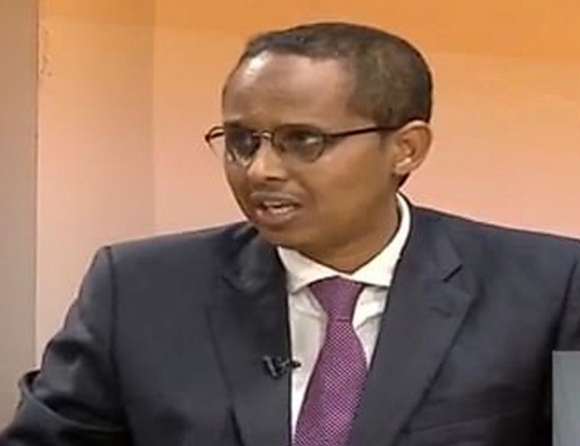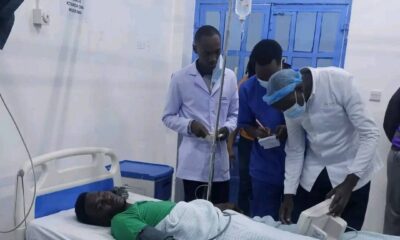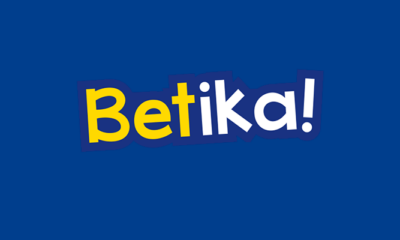Opinion
Wehliye: How The Goverment, CBK And Commercial Banks Working Together Can Salvage The Economy From Covid-19 Pandemic

By Mohamed Wehliye
Along with dealing the health issues, the highest urgency lies in securing the funding to businesses. The government, the central bank & the commercial banks should come together and play a key role in mitigating the long term economic damage of this health crisis.
Covid-19 is a health crisis that has also serious economic consequences. Many countries are dealing with the health problems but are at the same time trying to minimize the impact on the economy now & once the health issues are dealt with.
In the last 2 months or so, I have been involved in designing Fiscal impulse, Deferral & Liquidity/Gurantee programs meant to respond to the Covid-19 crisis. In the process, I have looked at the various programs adopted by different countries (of different sizes & capacity).
In my opinion, the best programs to support the economy are those that are designed in such a way that there is risk sharing by governments through guarantee schemes & enlisting the banks to lend, using central & commercial bank funding for lending.
Unless we put in place a well designed & effective private sector stimulus program, the economy will likely not recover & that will have serious ramifications for the country- debt, jobs, security etc. Remember, our economy needed jump starting even before Covid-19.
Let the GoK put together a KES 100 billion loans to SMEs gurantee program to provide low cost funds at an attractive interest rate relative to the cost of funding for comparable maturities) for the SMEs. This will be money worth spent as investment in SMEs now = taxes tomorrow.
The National Treasury can partner with EIB/WB to provide lenders with a guarantee of 90% on each loan to give lenders further confidence in continuing to provide access to affordable finance to SMEs. The lender’s participation in the credit risk sharing shall be 10%.
The funding? KES 50 billion from the reserves released by CBK back to the banks & KES 50 billion from participating lenders. This way, the lenders will be getting a 50% discount on funding (the other 50% is money they had no access to) but assuming only 10% of the credit risk.
Because almost all the credit risk has been taken away from the banks, interest rate for these loans should be at max 5%. Remember the reserves will be like new money at 0% to the banks & as such cost of funds for these loans should be low.
Limit loan size to max 50m per customer so that as many SMEs (and as small) as possible can take advantage. Loan tenure of max 5 years and a grace period of 6 months for interest & principal requirements.
Facility should be available to viable businesses & should target specific sectors that are critical to the economy and where a lot of the employment is. Hospitality, Horticulture, Trade & Service, Public transport, Food & the food chain etc.
To manage risk of moral hazard, directors of these companies can be asked to also sign personal guarantees. Other risk management measures to prevent abuse of this cheap access to funds should be put in place.
It is in the interest of the banking sector that they support measures to save businesses and stimulate the economy. Otherwise, the credit risk that is building up in the system and the probable many years of recession will eventually also kill their own businesses.
Kenya Insights allows guest blogging, if you want to be published on Kenya’s most authoritative and accurate blog, have an expose, news TIPS, story angles, human interest stories, drop us an email on [email protected] or via Telegram
-

 Business1 week ago
Business1 week agoEastleigh Businessman Accused of Sh296 Million Theft, Money Laundering Scandal
-

 Investigations6 days ago
Investigations6 days agoInside Nairobi Firm Used To Launder Millions From Minnesota Sh39 Billion Fraud
-

 Business7 days ago
Business7 days agoMost Safaricom Customers Feel They’re Being Conned By Their Billing System
-

 Business1 week ago
Business1 week agoEXPLOSIVE: BBS Mall Owner Wants Gachagua Reprimanded After Linking Him To Money Laundering, Minnesota Fraud
-

 News6 days ago
News6 days agoUnfit for Office: The Damning Case Against NCA Boss Maurice Akech as Bodies Pile Up
-

 News7 days ago
News7 days agoTax Payers Could Lose Millions in KWS Sh710 Insurance Tender Scam As Rot in The Agency Gets Exposed Further
-

 News7 days ago
News7 days agoPastor James Irungu Collapses After 79 Hours Into 80-Hour Tree-Hugging Challenge, Rushed to Hospital
-

 Sports1 week ago
Sports1 week agoFury as Bettors Demand Probe Into Betika Over Alleged Unpaid Winnings















